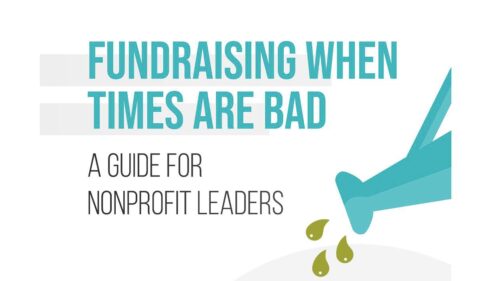Fat chance.
That's the main argument of Hunter's new To Change the World: The Irony, Tragedy, and Possibility of Christianity in the Late Modern World, recently published by Oxford University Press. Hunter writes specifically about Christians and their various attempts -- including those undertaken by conservative evangelicals, liberal mainliners, and Roman Catholics -- to bring about cultural change. But his thesis applies just as well to non-religious groups.
Hunter, of course, is the director of the Institute for Advanced Studies in Culture at the University of Virginia. He is perhaps most famous for his 1992 book Culture Wars. He is a man who has studied culture and cultural change deeply, from both the standpoint of an academic sociologist and as a popular commentator. His considered opinions on the subject should not be taken lightly.
I'm not yet through with To Change the World myself, so I cannot provide a full review (Andy Crouch has a thoughtful one in Books & Culture). But the premise from which Hunter advances is deftly and convincingly argued: namely, that those groups which argue that they are working to change the world by bringing about fundamental cultural shifts had better lower their sights. They may do salutary work, but they have almost no chance of achieving their goal of cultural transformation, because they fundamentally misunderstand culture itself.
To give just one example of this misunderstanding: most everyone believes that to change a culture, one must change the hearts and minds -- the ideas and beliefs -- of individuals. Change the thinking and feelings and opinions of enough men and women, and you'll get your cultural change as a matter of course. Sounds plausible enough. But Hunter destroys this notion, in part by offering illustrations such as these:
"As late as 1960, only 2 percent of the population claimed not to believe in God; even today, only 12 to 14 percent of the population would call themselves secularists. This means that in America today, 86 to 88 percent of the people adhere to some faith commitments. And yet our culture -- business culture, law and government, the academic world, popular entertainment -- is intensely materialistic and secular. Only occasionally do we hear references to religious transcendence in these realms, and even these are vague, generic, and void of particularity. If culture is the accumulation of values and the choices made by individuals on the basis of these values, then how is that American public culture today is so profoundly secular in its character?"
The long answer to this question is complex -- heck, it takes Hunter a couple hundred pages to unpack it. But the short answer is: culture is much more complex than the sum total of individuals' beliefs and principles. In fact, it is often at odds with those beliefs and principles, or at best only tenuously related to them. Culture comprises subrational, non-propositional, so-deeply-felt-that-they-are-never-even-thought-about-let-alone-questioned norms (another sociologist and one from whom Hunter has learned much, Philip Rieff, is especially illuminating on this topic). Culture is created by history, not acts of the will. It is a form of power. And so on. (Hunter elaborates on his view of culture, in contradistinction to that of Chuck Colson, here. Chapter abstracts are here.)
All of which is to say, if you want to effect cultural change, you need a different strategy than changing people's opinions about this or that issue. It may even be that no strategy would work -- but here we step onto ground that is at least contestable.
I'll try to post more on Hunter's book later. His argument is certainly one that many philanthropists and nonprofit leaders -- not to mention self-professed "social entrepreneurs" -- should grapple with. It turns out that ideas don't always have cultural consequences.
3 thoughts on “Bad news for would-be world changers”
Comments are closed.






It took a great amount of courage to write this book! I have read Hunter’s book twice; the second time with pen and notebook beside me. Having left a theological environment and joining the ranks and file of a public university, I find Hunter a steady guide. The strongest section by far is the first essay in which he describes how cultures do change. I found his notion that if even if there were a third great awakening, it would not produce any significant cultural change quite provocative yet compelling.
His alternative model of Faith Presence Within reads as if it is a new doctrine, yet many of the principles Hunter articulates I learned elsewhere from people like Os Guinness (a former collaborator), Ken Myers, and Leslie Newbigin. A former pastor of mine often told his congregation that “we are Israel in the midst of Babylon.” One of his favorite preaching texts was Jeremiah’s Letter to the Exiles. Yet, it is Hunter’s strong ecclesiology, namely that the Church is a viable plausibilty structure, that adds weight to his argument.
Space and time do not permit me to say more, but Hunter’s book is too important a book to ignore.
Scott — the quote I provided may not be the most powerful illustration of Hunter’s argument. I used to agree with you that ideational shifts accounted for cultural shifts in a relatively direct and uncomplicated way. I am much more skeptical of such a view now, thanks not only to Hunter but also to people like Ken Myers.
Great review Jeremy. I’ve picked up the book and have been enjoying following the debate it has created. I must say that I’m a bit turned off by the extended quote from the book you provided. There is a very clear and understandable reason why the various domains of business, law, education, etc. have become secular, and it is precisely because “ideas have consequences.” In short, there was a signficant theological shift in America from our founding to the present. A shift from a theology that supported cultural engagement to a dualistic theology that pitted the sacred and the secular. When this latter theology became mainstream, many Christians retreated from positions of leadership and influence in these various spheres of society because they were seen as “secular” or worldly. Those with a decidely materialistic worldview gladly filled the void. My point is that it was ideas–theological ideas–that had a huge impact on this predeominatly evangelical retreat from positions of influence in the various domains of society. Ralph Winter covers this ground convincingly in his paper titled “The Rise, Reduction and Recovery of Kingdom Mission, 1800-2000” which can be viewed here: http://www.disciplenations.org/uploads/PM/Np/PMNpdIhvwzfDJA-bz1FlhQ/The-Rise-Reduction-and-Recovery-of-Kingdom-Mission-1800-2000.pdf